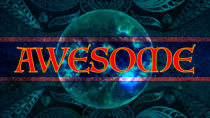 I often laugh out loud at Ross Douthat’s New York Times columns that worry over strange spiritualisms taking over America, or try to unravel cultural knots that he always suggests might best be resolved by Catholicism (or even one of those lesser faiths), but I did enjoy his take today on the perishing of the humanities in America’s universities and colleges. I routinely read into the 18th and 19th centuries as an exploration of how language was once used. I read analytically, that is. Plots are picked apart. Characterization is considered. Clausal embedding is almost always more ornate than contemporary writing where such elaborations are pretentious or, at least, overwrought. I also (try to) read original versions of Balzac or Flaubert as an exercise in improving my French. What is less interesting to me are the class conflicts, racism, and gender roles from those bygone days. People are rotten enough today; I hardly need a reminder that we were always rotten and had reinforcing institutions and traditions overlaying that malaise.
I often laugh out loud at Ross Douthat’s New York Times columns that worry over strange spiritualisms taking over America, or try to unravel cultural knots that he always suggests might best be resolved by Catholicism (or even one of those lesser faiths), but I did enjoy his take today on the perishing of the humanities in America’s universities and colleges. I routinely read into the 18th and 19th centuries as an exploration of how language was once used. I read analytically, that is. Plots are picked apart. Characterization is considered. Clausal embedding is almost always more ornate than contemporary writing where such elaborations are pretentious or, at least, overwrought. I also (try to) read original versions of Balzac or Flaubert as an exercise in improving my French. What is less interesting to me are the class conflicts, racism, and gender roles from those bygone days. People are rotten enough today; I hardly need a reminder that we were always rotten and had reinforcing institutions and traditions overlaying that malaise.
But is there a threat to a decline in the participation in the humanities and a shift to STEM fields among university students? The argument is that it impacts our understanding of history and the drivers that got us here today. Perhaps it also diminishes our knowledge of logic and reason when philosophy is subtracted from the curriculum. Or just that the student never learns to articulate complex ideas and arguments.
An alternative to Douthat’s calls for monastic recitation and memorization as a grounding for the transmission of ideas is to make it more relevant to the STEM fields that have money and mindshare. In other words, inveigle the humanities into STEM; don’t fight, infiltrate.… Read the rest

